Imagine a world where part-time work is more than just a job—it’s a flexible career choice that suits your lifestyle. That’s where Part-Time Employment Agreements come in, helping you set clear expectations and rights for a smooth work experience.
We know finding the right agreement can be tricky, so we offer free templates for various scenarios like seasonal, remote, or evening work. Choose the one that fits, customize it, and start your part-time journey with ease.
Unlock the potential of part-time work with our free, customizable Part-Time Employment Agreement templates in Microsoft Word. These templates are your go-to tool for creating a fulfilling and structured part-time career. Whether starting a new job or refining an existing one, easily personalize the template to fit your needs and kickstart your balanced work-life journey today.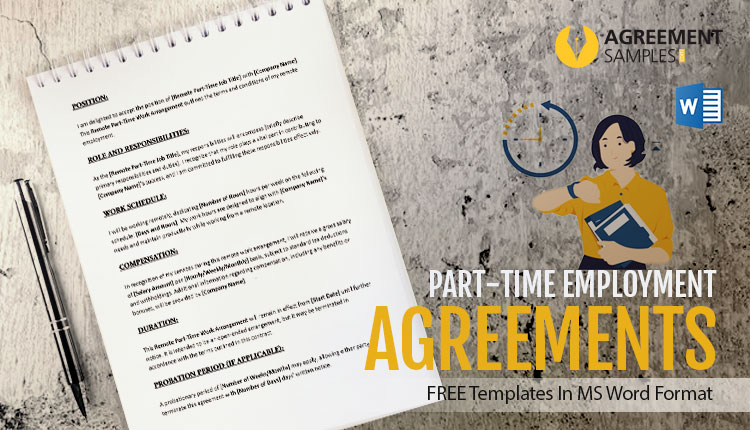
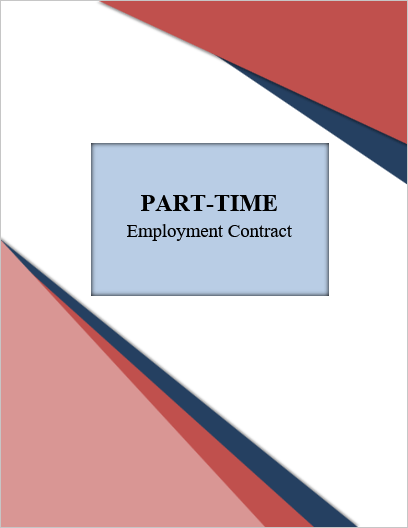

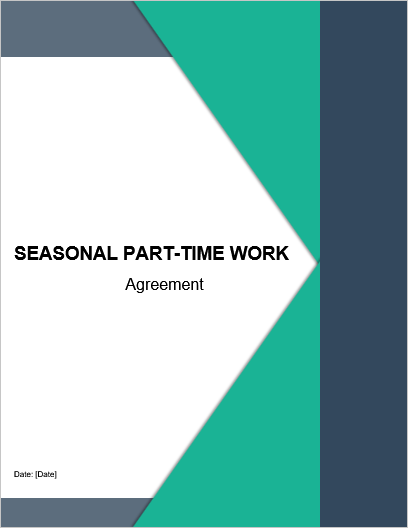

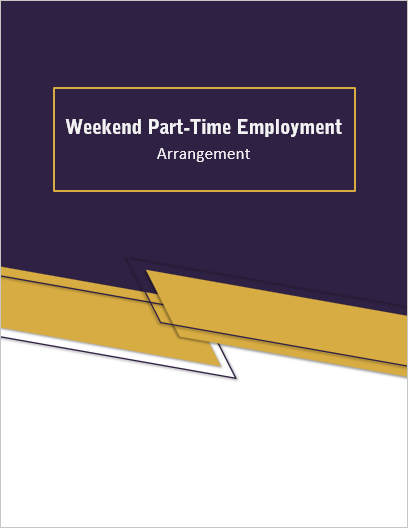
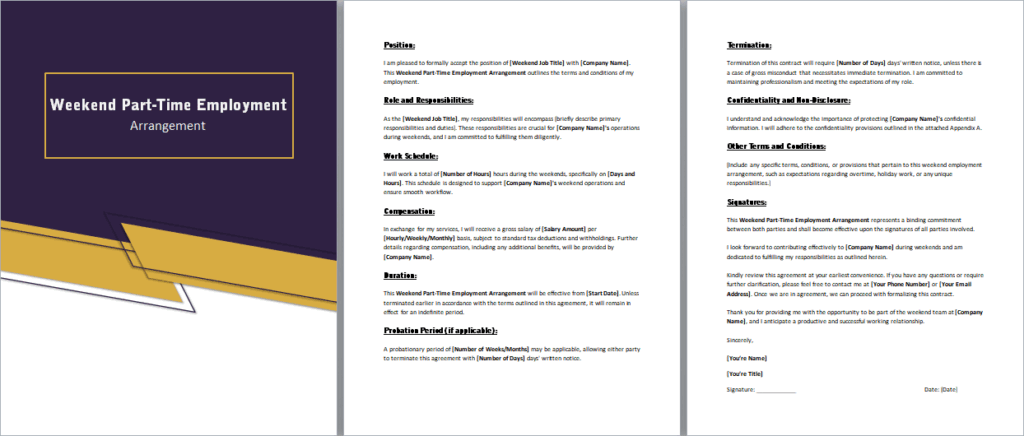
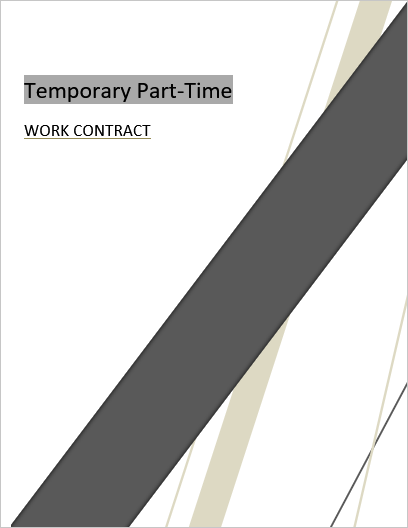

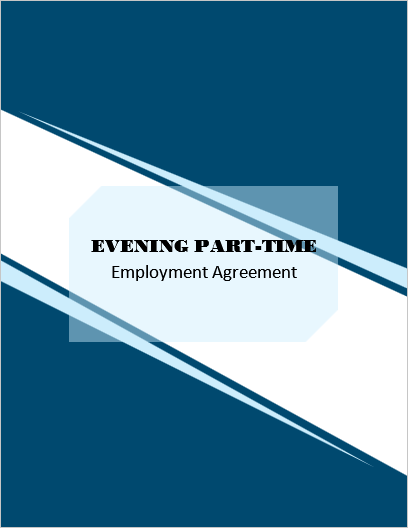
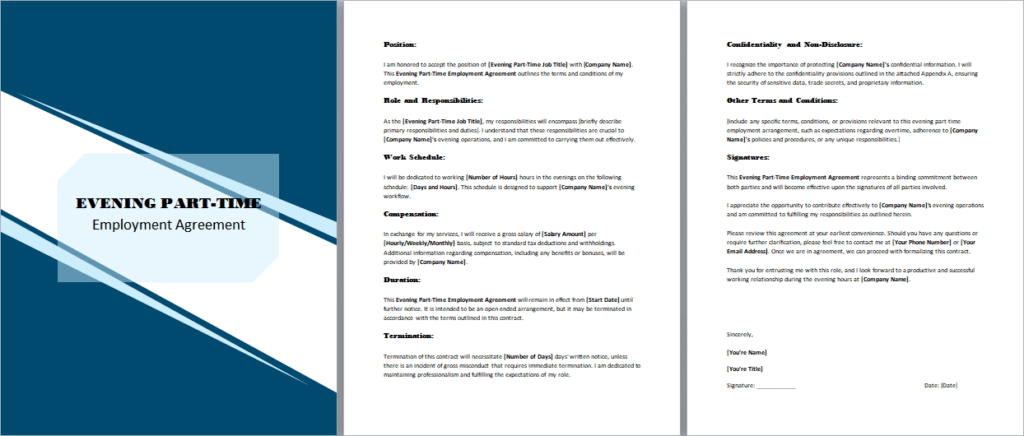
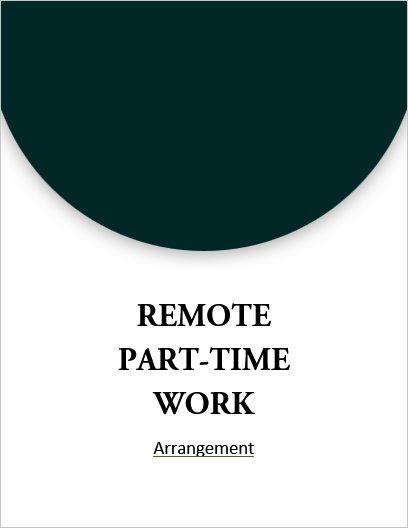

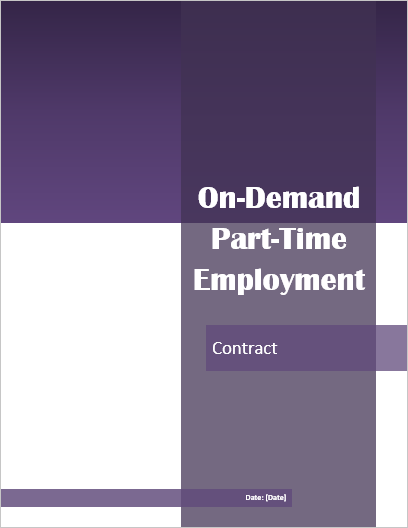
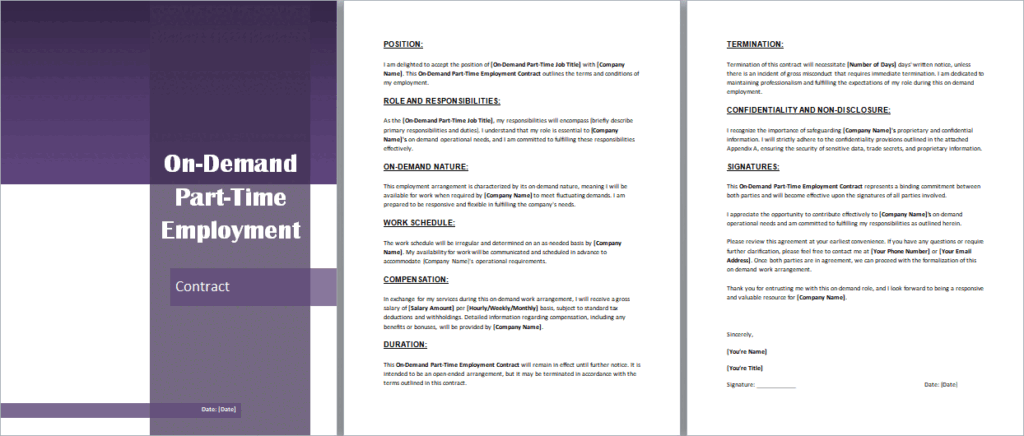

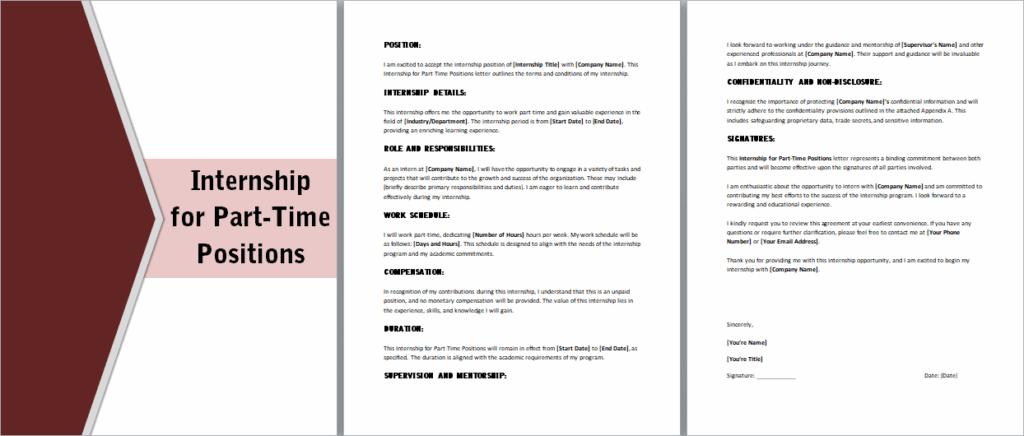

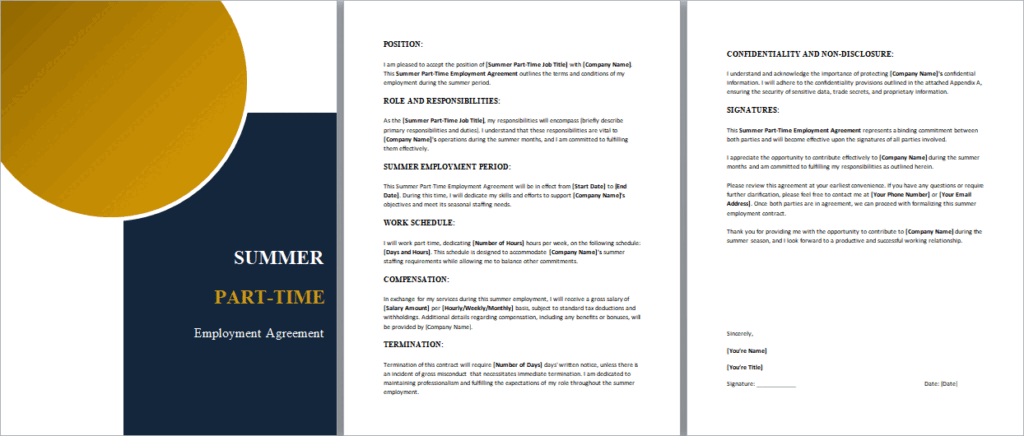
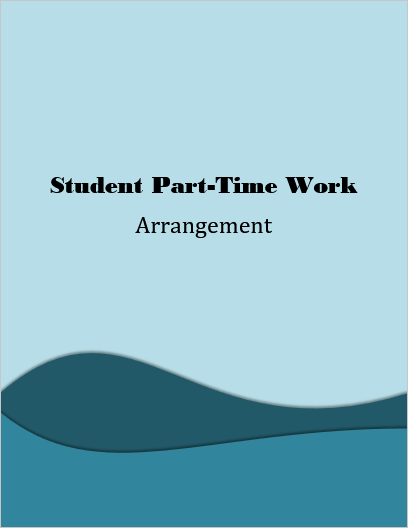
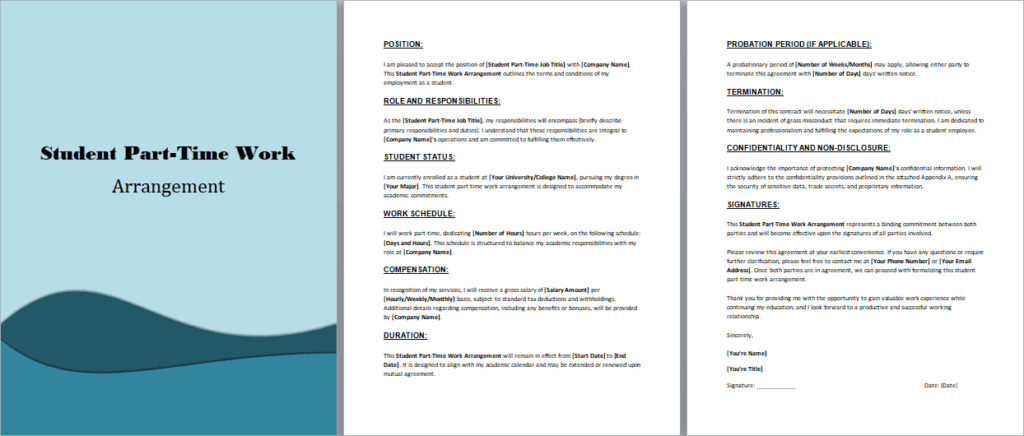

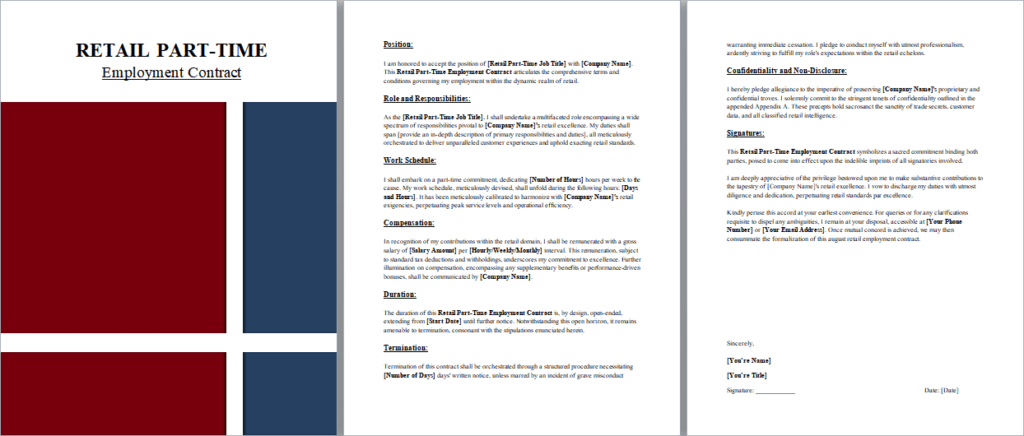


Here’s a more concise version with a friendly tone:
← Previous Article
14+ Free MS Word Commercial Lease Templates for You